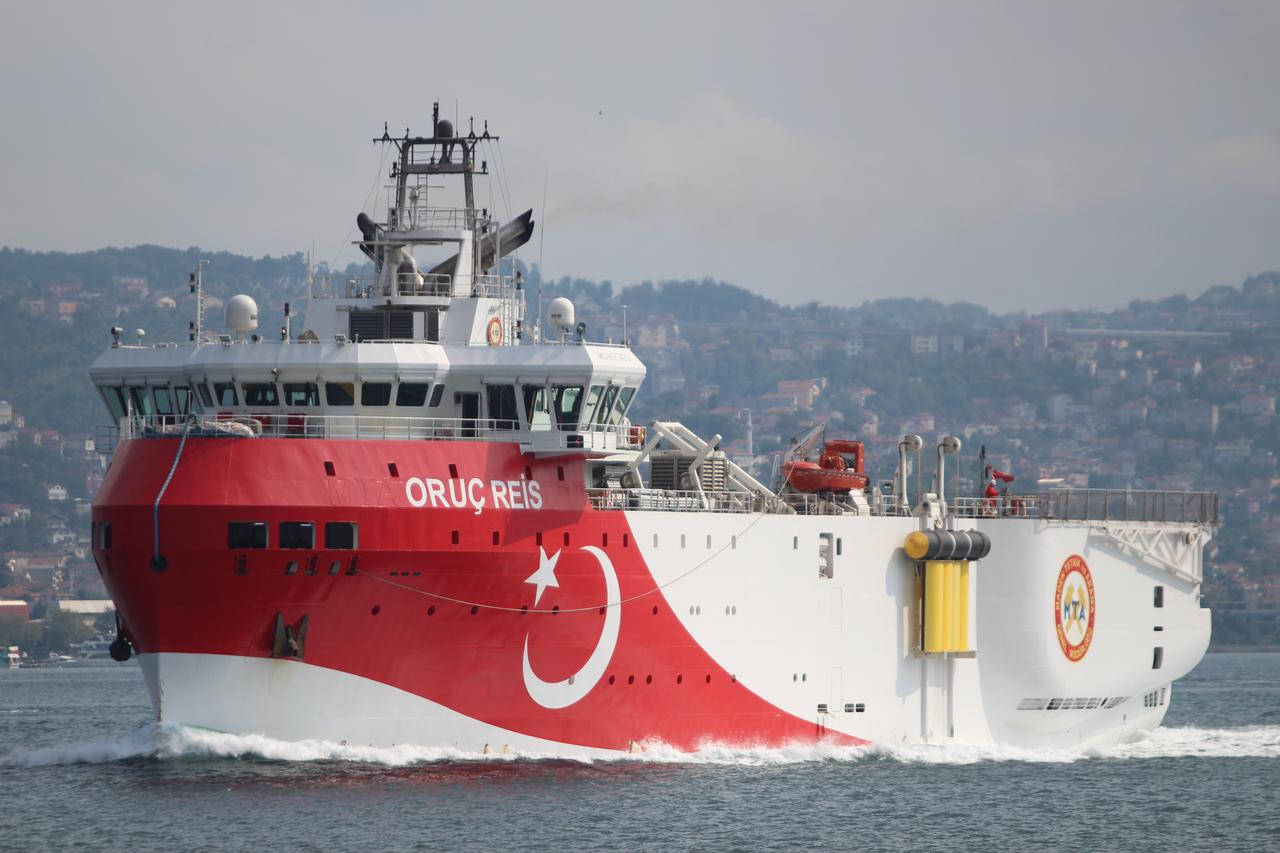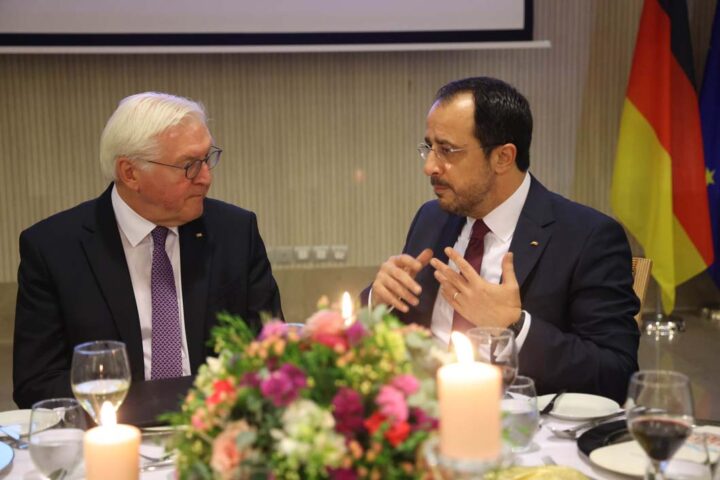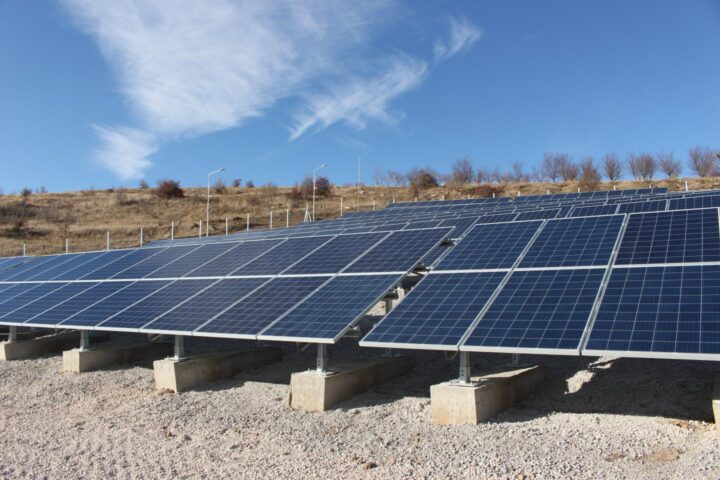The world is currently witnessing a tumultuous period marked by three significant wars that have far-reaching geopolitical, geoeconomic and energy implications: the Russo-Ukrainian war, the Nagorno-Karabakh conflict, and the Israeli-Palestinian (Hamas).
These conflicts underscore a shifting geopolitical scene, challenging the established world order and affecting economic stability, energy trade, and the energy security of nations.
They have highlighted the rapidly changing dynamics of international relations, moving from a monopolar world dominated by the United States to a multipolar/tripolar one, with the superpowers, the US, Russia, and China, engaged in intensified competition.
Aspiring quasi-hegemons, such as Turkey, Iran, and Israel, are actively seeking to assert their influence in the Middle East, the eastern Mediterranean and elsewhere.
Cyprus, strategically positioned in the East Mediterranean, is central to this global dynamic.
War Consequences
The West and Russia are leveraging energy as a weapon, contributing to price volatility.
Supply and demand dynamics, speculation, and geopolitics play significant roles in determining oil and gas prices.
Geopolitical tensions have rendered market mechanisms less effective, leading to price spikes, supply chain disruptions, and shortages in essential products.
The negative consequences have included lower energy security, higher energy prices, slower economic growth, high inflation, and declining living standards.
Apart from its ethnic roots, the conflict in Nagorno-Karabakh involved geopolitical implications on energy dynamics.
It was driven by the desire to eliminate the Armenian threat to the energy corridor between Azerbaijan and Georgia, intensifying the power and geoeconomic competition in the Caucasus and Central Asia.
The West aims to diminish Russia’s dominance in the energy market by increasing energy supplies from the Caspian Sea.
The historical animosity between Israel and Palestine, deeply rooted in religious and territorial disputes, also impacts the region’s energy security.
The war has led to the closure of the Tamar gas field, emphasising the importance of Cyprus as a potential geostrategic and energy partner for Israel.
This situation underlines the significance of Cyprus’ gas resources in enhancing the energy security of both nations, including the EuroAsia electricity interconnector and the need for a joint infrastructure for gas transport.
Israel’s equivocation regarding energy planning in the East Med and the Levant has not served its best interests, nor those of the EU, which seeks an alternative energy corridor for its energy security, nor those of its staunch ally, the US, which hopes to contain the Russian bear and the Chinese dragon.
Turkish Revisionism
Turkey believes itself to be a Eurasiatic power and aims to join the superpower league and acquire nuclear weapons.
Turkey’s revisionist policies in the Aegean and eastern Mediterranean, expressed through its “Blue Motherland / Mavi Vatan” policy and gunboat diplomacy, violating the Cyprus Exclusive Economic Zone (EEZ) since 2018, pose an existential threat to Hellenism.
As Turkey has been striving to snatch Cypriot energy resources, the current geopolitical developments have opened a window of opportunity for Cyprus.
Cyprus has made significant gas discoveries in its EEZ since 2011, necessitating a fast-track development strategy to redress the extraordinary delay in monetising them, particularly the mature Aphrodite field.
The EastMed pipeline has never been a viable project technically, financially, or geopolitically, nor in Cyprus’s interests. It was always a questionable proposition.
A pipeline to Turkey could only be justified if Ankara accepted a fair solution to the Cyprus problem without troops and guarantees.
Existing and future discoveries, including Aphrodite and possibly small Israeli fields, should be directed to Cyprus, not Egypt.
Negotiations with Chevron over Aphrodite’s development should focus on bringing gas to Cyprus and not on whether a floating production unit (FPU) should be used to direct the gas to Egypt.
ENI and its partner TotalEnergies shall also insist on directing the gas in Calypso-1, Cronos-1, and Zeus-1 in Block 6 to the Zohr infrastructure, and ExxonMobil may agree to do the same with the Glaucus-1 reservoir in Block 10.
If Cyprus gas is tied back to existing infrastructures, not Cypriot ones, the economic benefits will be minimal.
It is crucial to overcome constraints imposed by the international oil companies (IOCs), which seek profit maximisation and investment risk minimisation.
Cyprus must prioritise its national interests and insist on local infrastructure development, even if it means sacrifices in the production sharing agreements (PSA).
In the long term, the benefits for Cyprus will over-compensate the capital cost of local infrastructure.
The more extensive the energy infrastructure in Cyprus, the greater the value added to the GDP.
Addressing the interests of major energy players shall not be an easy task for the Minister of Energy, as it requires certain concessions.
However, it is essential to achieve collaboration among them to bring discoveries to a local onshore liquefied natural gas (LNG) plant.
Subsea wells in the Cypriot blocks can be routed to a fixed platform in the Cyprus EEZ and then to the LNG plant or FLNG.
Cyprus’ energy planning must consider regional and global geopolitics and geoeconomics.
The power struggle and the consequent instability in the international relations system have deep implications for the East Med energy corridor and Turkey’s ambitions to control energy routes in the region.
A new transport, rail and shipping corridor was announced at the G20 summit in Delhi on September 9 to promote world trade.
The India-Middle East-Europe Economic Corridor (IMEC) constitutes a geoeconomic project by the US intending to counter China’s expansionism via its Belt and Road Initiative (BRI).
It represents a geostrategic arc, stretching from India to Europe via Saudi Arabia, Israel, Greece, and Cyprus to deter and contain threats from various countries regarded as hostile to American interests, such as Russia, Pakistan, Afghanistan, Iran, Iraq, and Syria.
This presents an exceptionally promising and significant opportunity for Cyprus.
The Russia-Ukraine and the Israel-Hamas wars are altering the international chessboard.
Turkey’s ambitions to lead the Islamic countries have triggered a vociferous and outspoken critique of Israel’s actions in Gaza, which has frozen Turkish-Israeli relations as Turkey proves to be an unreliable partner for Israel.
Moreover, Cyprus not only provides the strategic depth that Israel currently lacks but has proven during the current war that it can function as a bridge for the rapprochement of Israel with the Arab states.
By embracing LNG as the preferred option and capitalising on the reconfiguration of interests and balance of power dynamics, Cyprus can position itself as an important player in the evolving global energy landscape.
Taking control of its gas resources and selecting LNG as its preferred energy strategy shall exert a transformative effect on Cyprus and its economy.
Panayiotis Tilliros is an economist, international relations, and geopolitical analyst. He is a research associate at the Cyprus Center for European and International Affairs at the University of Nicosia










